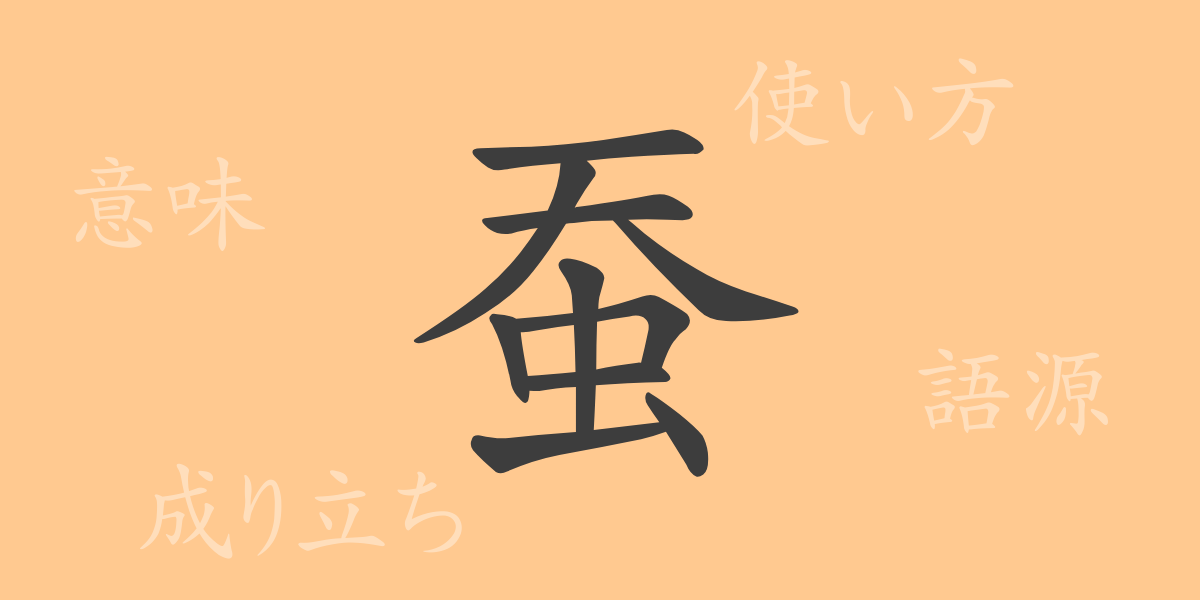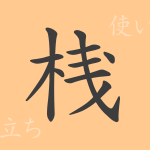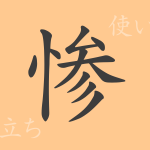The silkworm (蚕(かいこ)), a creature that has supported Japan’s culture and economy since ancient times, is deeply embedded in our lives and has influenced various expressions and words. This article explores how this small insect has become a significant part of Japanese life, leaving an indelible mark on our culture through language.
Origin of 蚕(かいこ)
The origin of the kanji “蚕(かいこ)” traces back to ancient China. The character “蚕(かいこ)” combines the insect radical “虫(むしへん)” with “天(てん)”, symbolizing a heavenly gift—an insect valuable for producing silk. In Japan, sericulture (the cultivation of silkworms) has been practiced since the Kofun period, and the silkworm’s value has been highly esteemed throughout history.
Meaning and Usage of 蚕(かいこ)
“蚕(かいこ)” primarily refers to the insect cultivated in sericulture for silk production. It is often used in terms related to silk production, such as “養蚕(ようさん)” (sericulture) and “蚕糸(さんし)” (silk thread). Metaphorically, it can describe dedicated labor, as in “働く様子は蚕のように” (working diligently like a silkworm).
Reading, Stroke Count, and Radical of 蚕(かいこ)
The kanji “蚕(かいこ)” has several features.
- Reading: The on’yomi (音読み) reading is “サン”, and the kun’yomi (訓読み) reading is “かいこ”.
- Stroke count: The character “蚕(かいこ)” has 11 strokes.
- Radical: The radical is “虫(むしへん)”, which classifies it among insect-related kanji.
Idioms, Phrases, and Proverbs Using 蚕(かいこ) and Their Meanings
There are several idioms, phrases, and proverbs that include “蚕(かいこ)”. Here are a few examples:
- 「蚕食する(さんしょくする)」 – To gradually encroach or take over.
- 「蚕糸を引く(さんしをひく)」 – To spin silk thread; metaphorically, to draw out something long and thin continuously.
- 「蚕の眠り(かいこのねむり)」 – A very deep sleep.
Conclusion on 蚕(かいこ)
The silkworm (蚕(かいこ)) is more than just an insect that produces silk. Its history, cultural impact, and the value inscribed in words continue to play a significant role in Japanese life and sensibilities. The beauty of silk and the dedicated nature of the silkworm convey many lessons that speak to us even today.

























